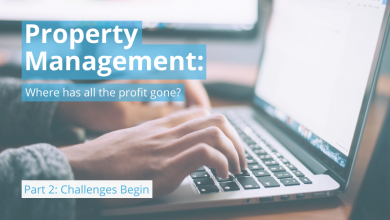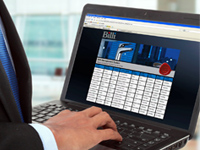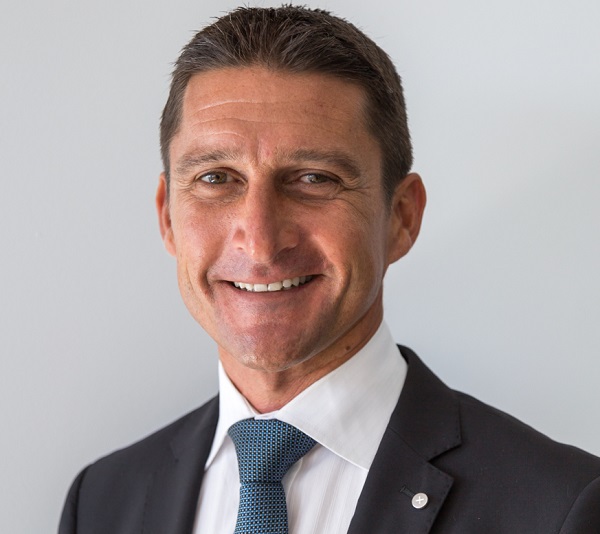
Integrate, automate & streamline: Make the most of your PMS
In 2023 and beyond, our industry needs to satisfy a new type of guest and their thirst for streamlined automation
2023 is predicted to be the year for a new type of traveller. Trends show guests are seeking simplicity, sustainability, convenience and comfort from a more streamlined accommodation experience.
Fortunately, accommodation management technology is continuously advancing to meet consumer’s needs. Integration and automation are driving development in the world of Property Management Systems (PMS).
Our latest AccomNews print issue is available now. Read it HERE
Accommodation experiences are required to be smarter than ever before and seamless communication with guests should begin well before check-in and continue long after checkout.
In 2023 and beyond, our industry needs to satisfy a new type of guest and their thirst for streamlined automation.
Your PMS must be able to not only manage your day-to-day business, but increase your yield, keep guests happy and returning, improve guest experiences and services, and most importantly increase bookings.
Let’s talk PMS with some industry leaders…
Scott Arthur, General Manager, REI Master says it’s important for a fully developed PMS platform to be capable of integrating with just about anything that helps operators manage their business better. From online booking engines to channel managers, payment gateways, point of sales, mobile applications for inspections, housekeeping, and maintenance, PABX call systems, access control systems and so on…
He said: “Integration of software saves time on mundane processes and streamlines the day-to-day tasks in any business. Automation removes the risk of human error on data entry or updating and it gives operators more time to focus on other important tasks.”
He advises to “align your business with a PMS that regularly provides continual development with updates, new features, and integration capabilities”.
And he said: “If your PMS is not moving forward with the times, it is going to leave your business in the past.
“Importantly, your chosen PMS should have the highest Data Security processes in place, and I recommend working with Australian owned and based software.
“Look for a PMS with advanced cutting-edge software and app technologies that fit your business. But also, inbuilt CRM capabilities to engage with past, present, and future guests, owners, tenants, contacts, and suppliers.
“Integrations to a PMS must be easy to use and easy to connect. Integration with a good booking engine allows guests to make a booking within just a few clicks. Using superior PMS software with enhanced communication ensures a unique guest experience and in turn, repeat business.
He added: “If your guests experience an easy, seamless and stress-free stay, why wouldn’t they want to come to stay again!”
Garth Kay, Head of Customer Success – Global, RMS Cloud, told us that a robust PMS should seamlessly connect you with any integrations or interfaces required to meet your business objectives.
He said: “Whether for an enterprise solution or a single property, its fundamental purpose is to grow your bottom line, save you, and your users, time and deliver a lasting positive guest experience.
“But what sets a good PMS apart is how innovative and up to date it is. It’s vital to ensure you are positioned well ahead of your competitors with the right tech stack for your hotel and business operations.
“I recommend a PMS focusing on automation and digitalisation of the guests’ journey. We have seen a notable upward trend in digital locks and mobile technology because guests want to access their rooms and hotel services via their smartphones. Automated check-in allows greater efficiency within a business that motivates upsell revenue and will enable the front office and guest service teams to focus more on a seamless and customised guest experience.
“This is a simple solution but makes a considerable impact,’ he said.
“If you’re yet to invest in an integration that automates your processes and helps save you time and money, you are missing an excellent opportunity to grow your business.
“Finding a property management system with a diverse offering of integrated partners is one thing but looking at how advanced the cloud-based technology is vital. It is essential as you need to depend on unified and reliable software that allows you to house all your partners in one place.
Finally, he advised: “By tapping into technology that meets the demands of the changing market but still reflects positive experiences, encourages guests to stay with you repeatedly and builds a level of trust in your brand and your teams’ recommendations.
“Storing details and important guest information that allows you to build detailed reports is one part of helping identify your guests’ needs – automating processes for easy check-in and custom room offerings to suit your guests and align with your brand for an authentic guest experience is the second.
“A powerful PMS should deliver offerings to suit guests’ needs that will encourage repeat bookings and provide ultimate guest experiences.”
According to Jurgen Ortelee, Managing Director of APAC, IDeaS Revenue Solutions, the tech stack for a hotel or hotel company, first and foremost should be reviewed as a whole.
“It is common that solutions are chosen in isolation which later brings challenges when further changes or enhancements are considered to the tech stack,” he said.
“A PMS is the centre of a hotel tech stack. It is the one source of truth for a hotel. A PMS houses all reservations, allows for in-house transactions to be recorded, provides statistical information and serves as a database for business intelligence at the hotel. It also stores crucial information such as inventory levels and room rates, which allows hotels to effectively manage reservation sales in real time.
“A PMS should also integrate with a revenue management system, which drives the hotel’s price positioning and inventory management decisions to optimize and increase hotel revenues. A modern revenue management system uses several sources of relevant data which are fed into the algorithms to analytically derive pricing and inventory management decisions. Therefore, a PMS should be able to provide the needed transactional data and accurately execute the decisions that are produced by the revenue management system.
He advised: “a PMS should also be able to integrate with an online booking engine that displays inventory listed in the PMS with the goal of taking online reservations”.
Beyond that, he said: “Channel management software assists with managing connectivity to online travel agencies or vacation rental platforms. The PMS should act as a central hub that controls, automates and accelerates a vast range of essential procedures.
“Hospitality organisations that want to compete in today’s market need two-way integration so essential departments can communicate and coordinate with ease and efficiency.”
He added: “A PMS successfully integrated is a powerful tool for automation of routine tasks. A modern revenue management system coupled with a PMS can analytically assess hotel performance, market demand, deploy pricing and inventory decisions, and length-of-stay across the distribution channels accordingly.”
As a final thought Mr Ortelee said: “In summary, a PMS should enhance efficiencies and customer service, leading to increased revenues and profits. It is the central system that connects all parts of a hotel’s technology stack. Choosing the right PMS needs to be a thoroughly researched and conducted exercise involving all departments in a hotel.”
Sylvia Johnston, Senior Executive, HiRUM, says that a PMS should be capable of integrating with anything and everything! Most importantly it needs to be able to support two-way integration with most products on the market.
She said: “When information is sent out to a check-in app, for example, actions taken in that app must also be fed back to the PMS and updated within your software. Seamless two-way integration is vital in ensuring that your PMS always remains the source of truth for your business.
And she points out that because your business is unique its needs are considerable.
“Your PMS must afford a choice of integrations and platforms to ensure that you have the best fit for your business needs,” she advised.
“You should never be locked into a specific 3rd party solution because it is all that your PMS provider offers.”
Software integration and automation are capable of saving time, minimising human error and maximising efficiency but Sylvia says it should do so much more than this.
“Integration opens a raft of opportunities to enhance profitability and efficiency in any busy resort. It allows you to consider strategic options that may have previously been precluded by time constraints.
“Most importantly, make sure your PMS allows for choice. A PMS that limits your choice of the channel manager, for instance, could limit your ability to integrate to specialised channels that may be suited to your business.”
“With respect to your business costs, it essentially creates a mini-monopoly and restricts you from sourcing pricing options or looking at competitor channel managers without changing your entire PMS.
“It places your business at risk of being dependent on an embedded 3rd party distribution product that the PMS provider has no real control over.
She warned: “Consider the situation if that channel manager, was purchased by a large OTA, for example.
“You run the risk of being limited to a channel manager that may intentionally limit your choice of distribution. It may have a level of visibility over your pricing and availability that is not in your best interests to have accessible by the OTA.”

AccomNews is not affiliated with any government agency, body or political party. We are an independently owned, family-operated magazine.







